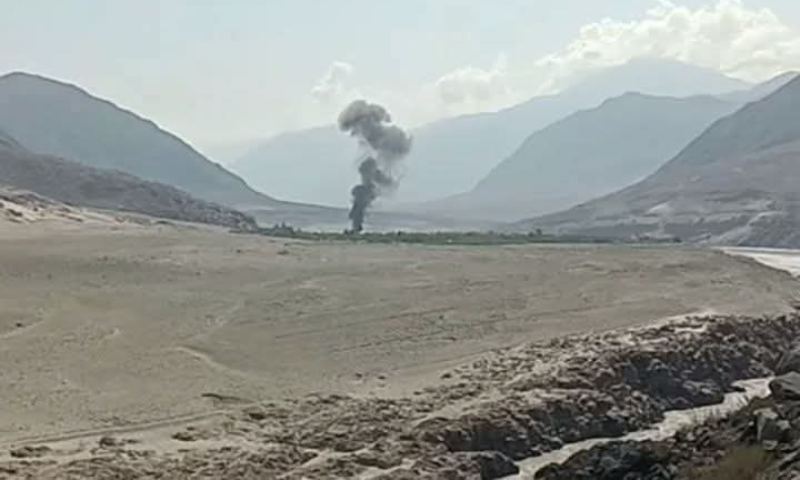Ambassador Muhammad Sadiq Khan, Pakistan’s special envoy for Afghanistan, warned Monday that “all agreements with Afghanistan are out” if the Taliban rulers did not act on Islamabad’s growing concerns regarding the terrorism emanating from the Afghan soil.
Pakistani officials have been saying for a long time that the leaders of the armed groups operate from the Afghan soil to launch attacks in Pakistan. Kabul denies the statements.
“TTP (Tehreek-i-Taliban Pakistan) is a challenge, a great challenge for us. It cannot be tolerated because our children are killed every day. Martyrdom has become so common in certain areas. That is more or less, it would be criminal to ignore that. And we have to find a solution.
“Afghanistan will have to work with us on this. If they are not working with us, then all the agreements are turned off. Nothing could have happened. There would be no more progress at all,” said the special envoy Pakistaní when heading to a seminar at the Islamabad Policies Research Institute (IPRI).
His comments occurred almost two weeks after having conversations with Afghan Taliban ministers and senior officials in a wide range of problems, focusing on prohibited TTP and other groups blamed for violence in Pakistan.
Khan had traveled to Afghanistan in December last year, days after the country’s special envoy was re -elected to the neighbor.
“Pakistan could be very useful for Afghanistan if we could stop terrorism from the other side of the border. It would be pragmatic and honest about it,” he said.
“We also have a problem in Pakistan, that is a part. But people who come from Afghanistan are also a problem that must be stopped, that must be done,” Sadiq said.
Pakistan has been asking the Taliban government since its acquisition in August 2021 to take measures against the TTP and other terrorist groups and prevent them from crossing the border.
The Taliban government organized conversations between Pakistan and TTP leaders in Kabul in 2022. However, the conversations failed and the then government ended the negotiations.
“The solution is not necessarily killing people, the solution does not necessarily arrest people and delivers them to Pakistan. The solution is to restrict them, the solution contains them, in which I think no one should have any objection,” said the ambassador.
The Taliban government has not responded to the latest comments from the special envoy Pakistani. However, he does not accept Pakistan’s position on the presence of TTP in the Afghan floor.
The governor of Khyber Pakhtunkhwa, Faisal Karim Kundi, also addressed the seminar in “a holistic evaluation of Khyber Pakhtunkhwa’s security and governance challenges” in a local hotel.
“While security forces have made significant sacrifices to bring peace, problems are still in general for terrorism, corruption, poverty, smuggling, drug trafficking and political problems,” Governor Kundi said.
“In this sense, a solid-military civil pact is required to solve these problems; there is a need for sustainable governance, one that is responsible and efficient,” he said.
He said that the empowerment of local governments was essential, and financial aspects and systems must be administered by those with relevant experience.
The former KP prime minister, Amir Haider, Khan Hoti, emphasized the need for people’s property to combat militancy.
“We need a national consensus to combat terrorism and treat it as a problem above politics,” he said.
Meanwhile, former Senator Sitara Ayaz said on the occasion: “It is unfortunate that we have been fighting for more than two decades and still wrapped in the fight and internal struggles.
“We have not been able to deal with postcolonial impacts, and without understanding the cultural and historical dynamics of Fata and KP, we try a fusion.”
The Lieutenant Gen (retired) Hasan Azhar Hayat said: “We are losing the social space in KP. We need to identify the needs of the people of KP. People are tired of operations, and do not want terrorist attire as the Taliban in the area.
“We need to facilitate the development and empowerment of the people and young people of KP. Growing the locals and tribal: the center cannot do good policies without the contribution of the premises,” he said.
The president of IPRI, Dr. Raza Muhammad, said in his opening comments that “over the years, despite fighting and resisting problems, terrorism problems persisted.
He said that Pakistan’s strategic location was extremely significant within the region, since it was rich in natural resources from north to south. “Unfortunately, the entire belt is unstable. The external forces of chaos thrive when there is internal instability. People’s complaints are exploited by external and internal forces,” he said.








